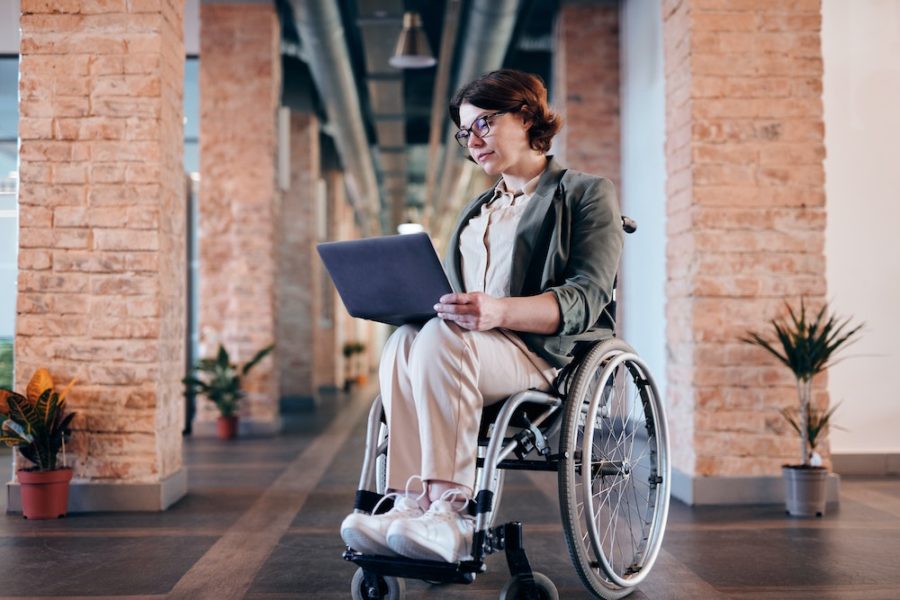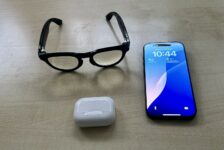For some, being forced to stay home and work remotely via Zoom during the Covid-19 pandemic has been a temporary reprieve from the daily commute. Employers have supported workers to work from home, and for those with the technology, and an income from employment, the inconveniences of the Covid lockdowns have been eased.
For others there has been little support and Coronavirus has brought into sharp focus the digital divide that exists in the UK. Poorer parents have struggled to afford laptops and broadband connections to help school their children at home, and families have found it difficult to keep in touch with loved ones locked down in care homes and Covid wards.
According to the Office of National Statistics disability is one of the main factors that influence the digital divide in the UK, and the Covid-19 pandemic has laid that fact bare like never before.
I am clinically extremely vulnerable to Covid-19 as the result of muscular dystrophy and have spent much of the year shielding from the virus. Amongst other things I have used the time to work on a personal campaign, which I have called Colin’s Campaign, that calls on the UK Government to introduce a scheme to make smart technology affordable and accessible for everyone within society and end the modern scourge of digital exclusion.
Once upon a time I was a little boy sat in a wheelchair trapped in a body that didn’t work, who dreamt of becoming a television producer. The digital revolution of the 1990’s meant that I was able to have a successful career as a producer for the BBC. It was through securing access to technology that meant that I was able to make my dreams come true. But as we move through another digital revolution, and we are being forced to isolate at home away from others, many disabled people are not able to live out their dreams, and struggle to keep in touch, and maintain their independence. This is because the type of technology that liberated me is, for many, inaccessible and unaffordable at a time when the need for fairer access to tech has never been greater.
There are currently 14.1 million people in the UK living with a disability, and four million disabled people are living in poverty. Devastatingly, the proportion of people with a disability that feel lonely and isolated is four times that of non-disabled people. The Government imposed lockdowns have shone a light on what for many within our community is a daily reality.
The isolation that repeated Covid lockdowns bring is nothing new to me. Prior to the pandemic I could spend months at a time confined to my home and the technology that many take for granted is all that keeps me connected and independent. It is shameful that at a time when so many people are forced to rely on technology, those that need it the most are the most excluded.
That is why I am calling on the Government to introduce a scheme that would make technology affordable and accessible to disabled people. Because everyone deserves to enjoy a full and active life of opportunity. Technology liberates us and allows us to fly as high as we can go in our life, because it inspires us and levels the playing field. We all deserve to live in a society where no one is priced out of their future and independence.
What the scheme should look like
I am calling on the government to introduce a scheme that replicates the Motability scheme (for transport) for smart technology. The scheme should be responsible for the finance, administration and maintenance of technological devices and services. The devices could be leased to customers who would be able to use a percentage of their disability allowance for hassle-free assess to the technology that would most benefit them, in the same way they can currently use their allowance to lease a car, scooter or wheelchair through Motability.
For me, it is voice-controlled devices and services, such as Amazon Alexa that have been most life-transforming. Certainly, you are only reading this article because I am using voice recognition technology to dictate the words onto this page. I have transformed my home into a ‘smart-home’ and am able to instruct Alexa to control everything such as the television, heating, lighting and even to turn my kettle on in the morning. The voice controlled smart kettle is the gadget is that has given me the greatest psychological buzz, it’s symbolic of increasing independence.
But the process has not been easy, it has taken years of research, personal investment, and failed attempts at making the technology work for me. But I know that it could be so simple if a scheme existed that provided good value, guidance and support in accessing the devices or adaptions tailored to the needs of disabled people as customers.
What needs to happen
I am launching my campaign to government to encourage them to take active steps to introduce a Motability-style scheme to prevent the catastrophe of digital exclusion disabled people face. I will raise awareness of the level of poverty that exists amongst disabled people which makes one-off purchases of technology equipment impossible. I will also be raising awareness of how the Motability scheme has greatly improved and opened up access to transport for people living with disabilities, and that there has never been a more important time than now, during the Covid-19 pandemic, to replicate that scheme for smart technology.
Big technology companies need to step up to the plate. This week Apple announced a major new project to tackle racism investing $100M in the initiative. I would like to see one of the tech giants launch an initiative to make technology products and services affordable and accessible to disabled people. According to disability charity Scope the total spending power of families with at least one disabled person is estimated at £274 billion a year. Perhaps that is something that might make the tech giants sit up and take notice.
Technology is no longer a luxury. It is a right that everyone in society should be able to access.
The Government are currently setting out their plans for the new National Disability Strategy aimed at transforming the lives of disabled people to ensure that they have access to opportunities and are able to achieve their potential.
It is my mission to ensure that Colin’s Campaign will put fair access to technology at the centre of this, and all future government strategies as it attempts to rebuild the country from the ravages of the Coronavirus pandemic.






